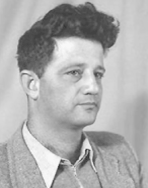

This 1949 novella about the violent expulsion of Palestinian villagers by the Israeli army has long been considered a modern Hebrew masterpiece, and it has also given rise to fierce controversy over the years. Published just months after the end of the 1948 war, Khirbet Khizeh (the “kh” pronounced like the “ch” in “Bach”) was an immediate sensation when it first appeared. Thousands of Israeli Jews rushed to read it, the critics began to argue about it, and a Palestinian journalist in Nablus described it as a sign that the Israeli army had a conscience and that peace was possible.
Since then, the book has continued to challenge and disturb. The various debates it has prompted would themselves make Khirbet Khizeh worth reading, but the novella is much more than a vital historical document: it is also a great work of art. Yizhar’s haunting, lyrical style and charged registration of the landscape are in many ways as startling as his wrenchingly honest view of one of Israel’s defining moments. Despite its international reputation, the book has never before been translated into English. Nicholas de Lange and Yaacob Dweck’s expert rendering captures with grace Yizhar’s elusive prose, while David Shulman’s afterword makes the book’s contemporary relevance powerfully clear. Khirbet Khizeh is an absolute must for anyone interested in Middle Eastern literature and history.
“An exhilarating masterwork. Ibis (a genuine beacon of hope) publishes an ecumenical list of elegant books from ‘Levantine’ authors, whatever their background. They have surpassed themselves with a terrific translation of S. Yizhar’s classic novella…. Khirbet Khizeh endures to bear a bitter witness that transcends allegiance or affinity…. Readers should rush to share its still-shocking wisdom.”
Boyd Tonkin, The Independent
“Years after the tragic events it describes, Khirbet Khizeh retains its disturbing relevance…. Conveying in vivid microcosm the moral ambiguities attending Israel’s establishment in 1948, [it] resonates as both historical experience and art.”
The Times Literary Supplement
“Astonishing.”
The Economist
“The translation, like the afterword, makes it clear that [with the English publication of Khirbet Khizeh] we are confronted not with a political-humanistic pamphlet so much as with a literary work of extraordinary power.”
Fania Oz-Salzberger, Ha’aretz
“Yizhar’s extraordinary tale narrates the need, and the price, of remembering.”
Jacqueline Rose, The Guardian
S. YIZHAR was the pen name of Yizhar Smilansky, born in Rehovot, Palestine in 1916. A longtime member of Knesset for the Mapai (Labor) party, he is perhaps most famous as the author of Khirbet Khizeh and the 1,156-page magnum opus, Days of Tziklag, about the 1948 war. After winning the Israel Prize in 1959, he taught education at the Hebrew University for many years and lapsed into literary silence until 1992, when he published the first of a trilogy of autobiographical novels, Preliminaries. He died in 2006.
NICHOLAS DE LANGE, who is professor of Hebrew and Jewish Studies at Cambridge University, has translated many Hebrew novels, most recently Preliminaries by S. Yizhar (2007). YAACOB DWECK has previously translated Haim Sabato’s The Dawning of the Day (2006).
DAVID SHULMAN teaches Sanskrit and other Indian languages at the Hebrew University. He has published numerous books and is the author of Dark Hope: Working for Peace in Israel and Palestine (2007). Shulman was named a MacArthur Fellow in 1987.
Paperback $16.95 110 pages ISBN 978-965-90125-9-6
PLEASE NOTE: Ibis’s edition of Khirbet Khizeh is now out of print, but we are very pleased to announce that Farrar Straus and Giroux has just reissued our translation.
Click here to order.